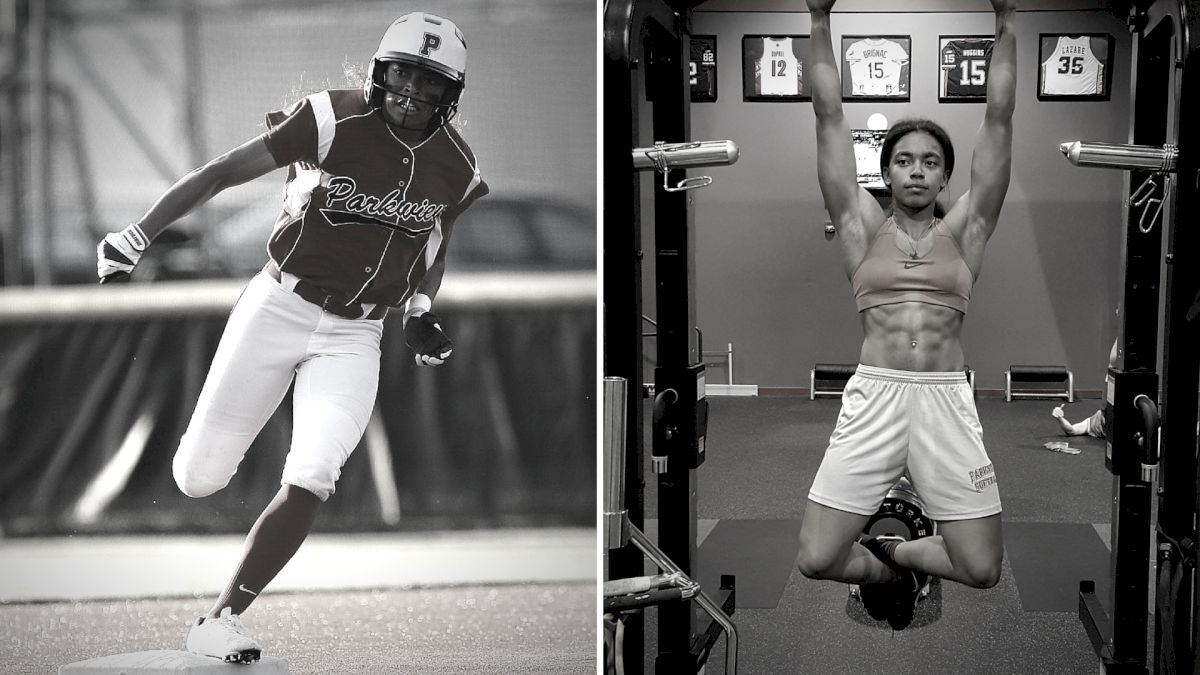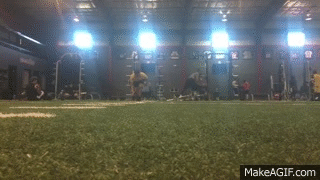Offseason Training with Nicky Dawson
Offseason Training with Nicky Dawson
Nicky Dawson reps out 315 pounds on a trap bar deadlift for 6 reps like it's child's play. From a strictly numbers standpoint in the training room, high sc

Nicky Dawson reps out 315 pounds on a trap bar deadlift for 6 reps like it's child's play.
From a strictly numbers standpoint in the training room, high school senior and LSU recruit Nicky Dawson blows them away. It’s not even really that close.We introduced you to Nicky last week in a piece where we claimed she may be softball’s best athlete and immediately we had fans asking what her incredible training room numbers have to do with her softball skill. Too often, the weight room is considered at best a nicety and at worst detrimental to performance with skill sports like softball. The overwhelming philosophy guiding the training of skill-based athletes like softball players is an emphasis on the skill itself— the pitch, the throw, the swing — and perfecting these specific skills to many is the only way to improve performance.
No doubt softball is a heavily-skilled sport and thousands of repetitions of those skills must be practiced for players to maximize their potential in the sport. But what absolutely CANNOT be overlooked is the value of the weight room, ESPECIALLY with players as young as middle school. No amount of weight room training is going to make a poor softball player the next Lauren Haeger, but in the ultra competitive early recruiting atmosphere, players need every advantage they can get to stand out among their peers.
Nicky Dawson is the perfect example of how weight training can take an already gifted athlete, accelerate her development, and make her stand out in the crowd.
Nicky routinely runs speed drills like the one above with NFL cornerbacks who train at Traction Sports Performance — and stays with them step-for-step.
Nicky has only been training for a little over two years. She admitted that before she started training with Traction Sports Performance in Baton Rouge, Louisiana, she just assumed strength training was something she’d get to in college. It wasn’t until she was able to see Bianka Bell and Sahvanna Jaquish up close and personal that she realized what a difference the weight room could make in her game. “Seeing the power Bianka and Sahvanna hit the ball with really opened my eyes,” explained Dawson. “Since I’ve started training, I’ve had so many people tell me they wish they would have hit the weight room when they were in high school.”
The Program
Hitting the weight room for Dawson consists of a 90 minute training session, three to four time a week with her trainers at Traction. The first 45 minutes of each session emphasize speed, agility, and plyometrics while the last half concentrates on moving some weight. Mack Chuilli, Chief Executive Officer/Performance Director at Traction, estimates that Dawson has been training with him and his trainers about 80 weeks over the last two years and made special emphasis on her commitment to training. “She doesn’t miss. Even if her team has an off day in the weight room, she’s there.”
Her dedication and commitment go along with Chuilli's first impression of her. “She was incredibly disciplined from the beginning. I could tell she was tremendously gifted with extreme speed, but she wasn’t always necessarily the strongest kid around…She wasn’t an overnight success.”
Dawson can now trap bar deadlift over 400 pounds and bench press over 200. She’s 5’7” and 135 pounds. Some people reading this will say, “So what? What does a 400 pound deadlift and 210 pound bench do for softball?”
Nicky’s dad, Charles Dawson, believes his daughter’s commitment to developing strength and power as a high school athlete is what has put her on the level of juniors and seniors in college. Charles was a baseball player in the Braves system for quite some time, then moved into coaching, so he knows a thing or two about talent and athleticism. With his daughter’s genetic gifts, he knows she would have had success at the high school/club level “just getting out of bed.” But he has seen firsthand how her strength and conditioning program has accelerated her development. “She’s become more athletic and gotten even faster. She hits the ball harder and has a much faster bat speed.”

Chuilli has seen the same transformation from Nicky in the past two years and says it is all a product of her work ethic. "She's made a commitment to her body," he explains. "She rarely eats any junk and takes in about 3,000 calories a day."
He also explains just how good of an athlete Nicky has become over the last two years. “Genetically, she is a good athlete. Her training has made her a great athlete,” says Chuilli. “She is the LeBron James type of softball. We’ve never had a softball player who is as strong and as fast as she is.”

I believe my training will be the difference between playing at LSU as a freshman as opposed to just playing as a junior or senior.
Nicky reps out 3 pullups with a 25 pound vest.
Pretty strong (pun intended) words and convictions from Nicky, her dad, and her trainer. I can't stress enough how much young softball players need to be lifting, and lifting heavy (with good form of course) because strength training has everything to do with softball. The stronger your legs are, the more force you can produce off the ground, allowing you to run faster, get a stronger drive off the mound, and cover more ground in the field. The strength and power from your legs translates through your core and upper body, allowing you to swing the bat harder, faster, and with more control. A strong, balanced body creates stable, injury-resilient joints. The list of benefits goes on and on.
Coaches and parents, please do your young players a favor and encourage them to do weight training and speed work along with their softball training, especially during this offseason time. As I mentioned in one of my previous articles on overspecialization, softball 24/7, 365 days a year will not result in a superior softball player. Rather, it results in an overspecialized, injury-prone athlete who probably lacks basic strength and mobility to maximize her genetic potential. So please squat, deadlift, swing a kettlebell, push a sled, climb a rope, do some pullups, and learn the Olympic lifts. I promise you’ll be a better softball player for it.